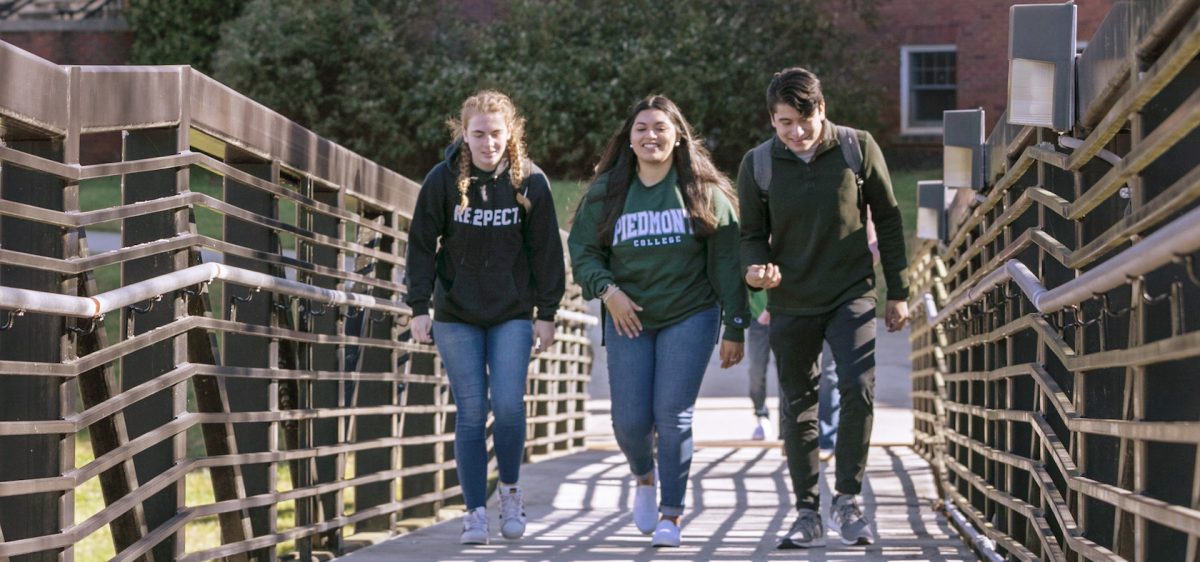
MICHELLE THOMPSON
Converged Media Manager
Have you ever wondered how Piedmont College decides to cancel classes?
According to Vice President for Academic Affairs and Professor of Education, Perry Rettig, the three vice presidents of Piedmont communicate with the campus police for the update of the weather report.
“When making the decision whether to cancel classes our top priority is the safety of our students and employees. At the same time, students are paying tuition to attend classes and benefit from the learning experiences in those classes, so the decision to cancel is not taken lightly,” said Rettig.
The police announce the possible weather and ice condition from a number of different sources. One source being the National Oceanic and Atmospheric Administration (NOAA), an online weather service that provides the weather data and warnings. The three vice presidents would then consult with President James F. Mellichamp. Then, the president makes the final decision on whether or not to cancel the classes.
The three vice presidents include Perry Rettig, the Vice President for Academic Affairs and Professor of Education; Amy Amason, the Vice President for Advancement; and John Misner, the Executive Vice President, Walker School of Business Dean and Professor.
Misner is in charge of communicating with the campus police for the weather update. Rettig is in charge of spreading the news to the students, staff and faculty to the Piedmont community. He contacts the Dean of Student Engagement and Director of Career and Counseling Services, Emily Pettit, who sends an email to the campus community, the students who commute and the off-campus cohorts. Amason is also in charge of spreading the news to the campus with her communication staff. She would send out the e2Campus alert to students who signed up for the e2Campus alert system (the system can also reach the students in the Athens campus). Amason also updates the Piedmont College web page and social media pages.
According to Rettig, the group tries to make the decision on a timely basis. For day classes, the vice presidents and president would try to make the decision by 6:30 a.m. For evening classes, the group would try to make the decision by 3 p.m. The group would also communicate with the Athens campus to decide if the classes should be canceled or not. The weather may vary in both campuses.
“We always expect students and employees to exercise their own judgment when determining if they feel it is safe for them to travel to campus,” said Rettig.
According to the e2Campus website, service was introduced in 2004 along with Omnilert, LCC, which “develops and markets the leading unified mass notification system for time-sensitive info to large groups of people.” E2Campus allows a single person in
a school to send emergency alerts to students via their mobile phones, email and web.
Rettig urges students to sign up for the e2Campus alert in order to be updated when classes are canceled and/ or for any other campus emergencies. Visit https://www.omnilert.net/my/piedmont/signup.htm to register to register.








